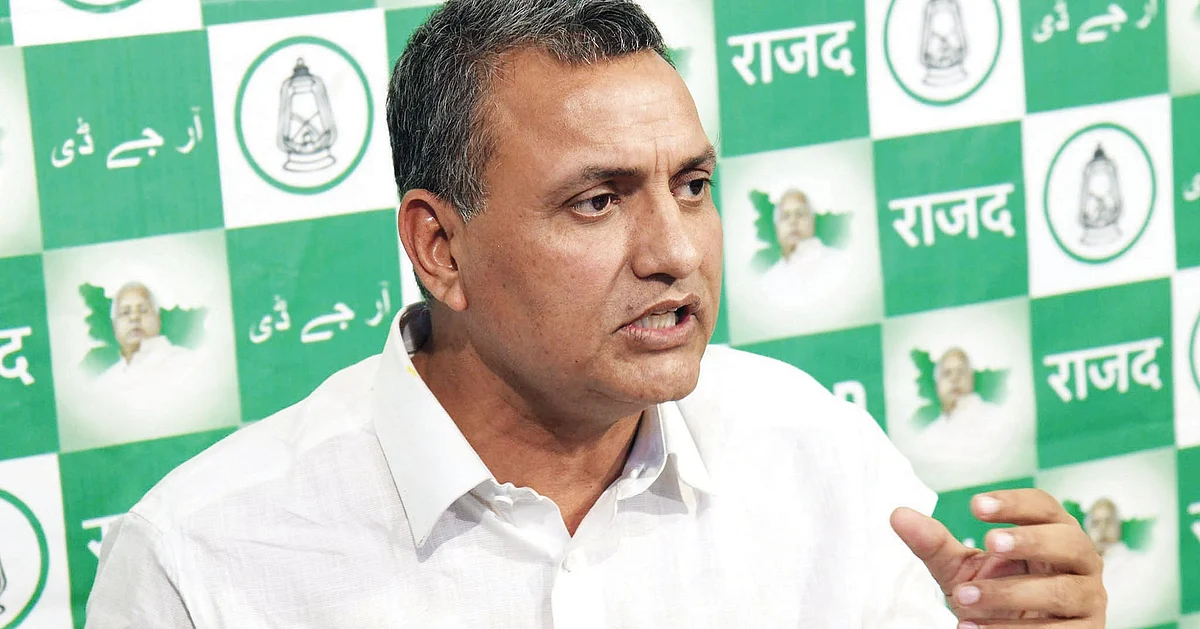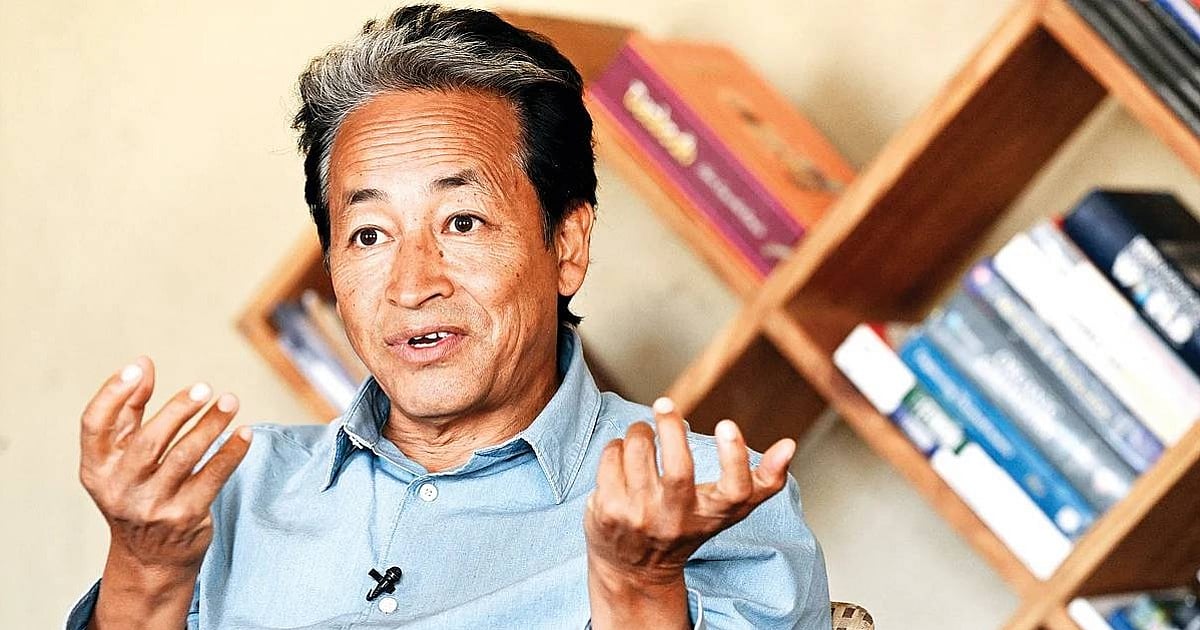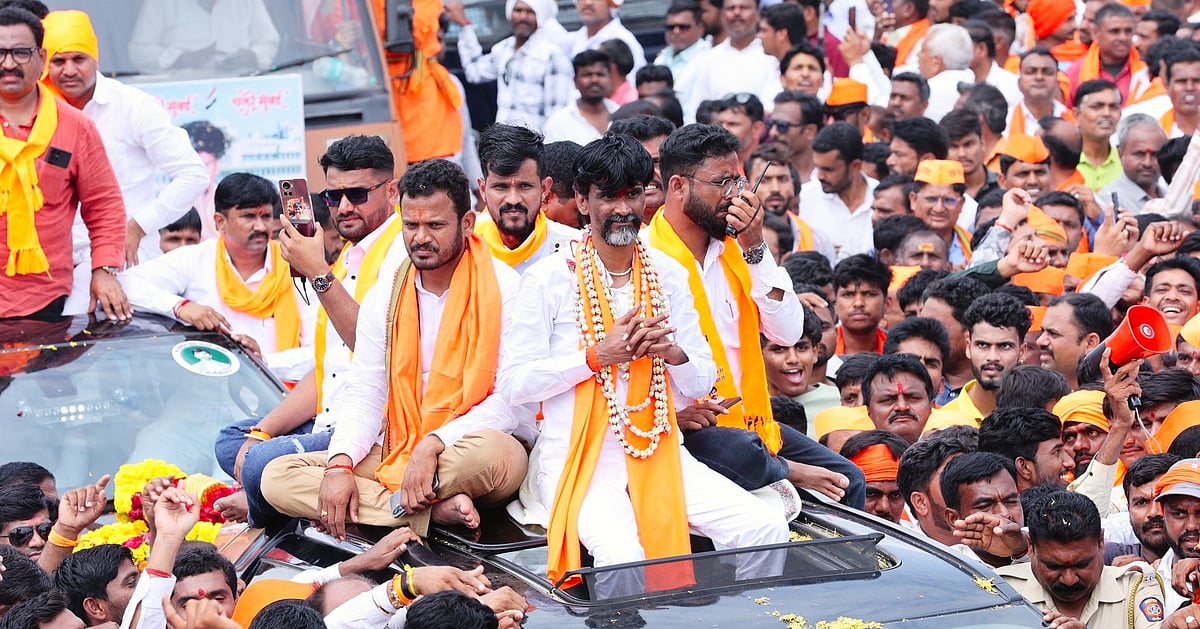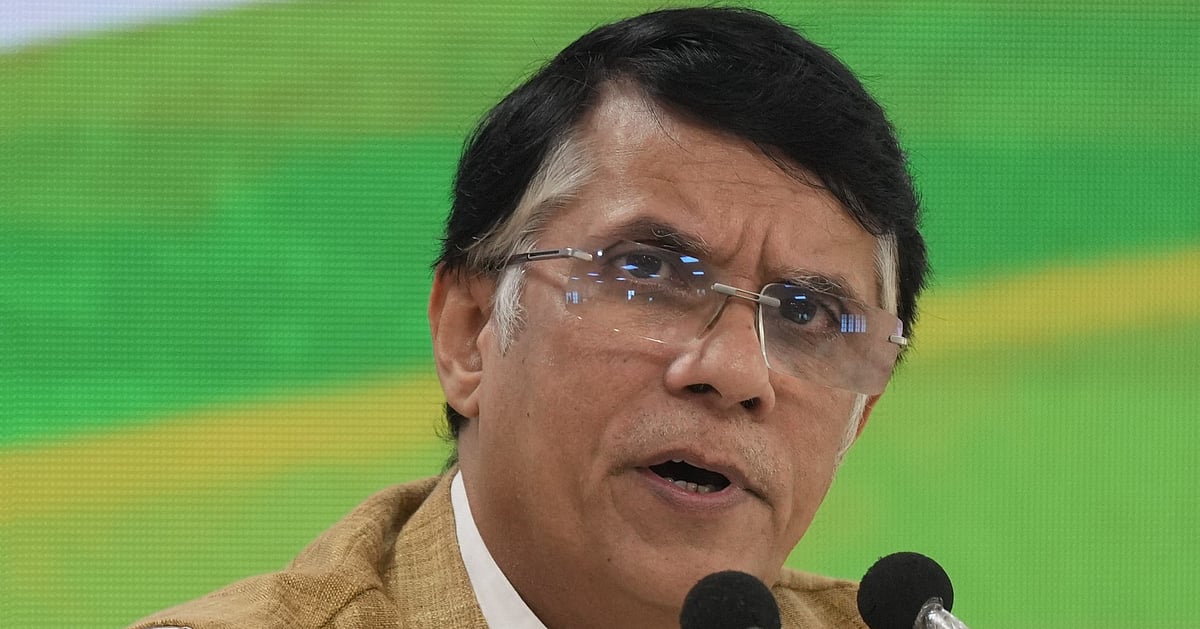National News
‘Sir designed to remove Landless and Anletard’

Outraged and honest, Sudhakar Singh The nation people are dal MP from Buxar in Bihar. As the former Agriculture Minister of the state, he accused his own department officials of corruption before resigning differences with Chief Minister Nitish Kumar. Now busy preparing for assembly elections, due to October/ November, he took time to talk Vishwadeep Controversial sir on exercise and general status of cases in Bihar. Part:
The Election Commission claims that the special intensive amendment (SIR) of the electoral roll is a regular and valid process. The opposition sees it as a exclusion and is designed to separate the poor, Dalits, backward and minority communities. What do you have to take?
It is a regular process that it is ridiculous. The voter list is normally updated once a year – in January. The process of adding or removing voters takes place between December and January. This was done in January 2025. So again, barely six months later? India Block has no problem with amendment. The way we protest is the way in which the head was executed, the documents considered the ECI ‘legitimate’ and considered the philosophy of the practice.
Even when the constitution was drafted – between 1946 and 1949 – Hindu Mahasaba and RSS were against universal adult suffrage. He believed that only educated and Utay should have the right to vote. This component was unacceptable to the majority of the assembly. Every adult Indian, rich or poor, educated or illiterate, were empowered to choose their representatives.
After all these years, the Election Commission is asking people to produce matriculation certificates or documents, which reflects the ownership of the land. In Bihar, 24 percent of the population has studied only up to high school and more than 40 percent are landless.
What he failed to do in the 1940s is being followed in 2025. What was inhabited is now after independence.
National News
Sonam Wangchuk accused the strategy of ‘Banana Republic’ as the authorities retrieved the Unive. land

Two days ago on 31 August, Ladakhi Climate activist and teacher Sonam Wangchuk posted a video on X, which confirmed that the local officials were targeting their Himalayan Institute of Alternative Teaching (HIL) by canceling the lease on the land allotted to the university seven years ago.
Describing the move as a sign of ‘Banana Republic’ rule, Wangchuk said that the Ladakh administration had notices that the government would show that the government would take back the land and demolish the premises built in five years. He questioned the time of this action, given that it did not happen in the last six years, but in October there was a coincidence with the upcoming Hill Council elections.
Wangchuk said, “Ladakh’s Hill Council promised the sixth schedule security measures in its last manifesto, but now they want to win the election without fulfilling that promise. I will not let this happen to the people of Ladakh,” Wangchuk said.
He alleged that from arrests to threats ranging from arrest to cancellation of land lease, and claimed that the authorities were now considering including the ED (Enforcement Directorate). Wangchuk welcomed an ED investigation, saying that it would highlight the work of eight years of the institute without salary and their personal financial contribution.
Wangchuk said that while Hial enjoys tax exemption, he himself pays income tax as a service for the nation. He also claimed that half a million rupees have been donated to the Ladakh UT government in its formation.
Climate activist attracted national attention with him Indefinite hunger strike In March 2024, when he began talks between leaders of Civil Society of Ladakh and Union Ministry of Home Affairs (MHA) when he came to a dead end of constitutional security measures for Ladakh.
Putting the issue forward, he and hundreds of followers also marched a leg for Delhi, forcing MHA to resume Ladakh dialogue in December 2024, although they remain inconclusive.
National News
Fadnavis ends rapidly after Jarang

Maharashtra Chief Minister Devendra Fadnavis on Tuesday, while facing the move of activist Manoj Zerennge to call his five -day fast on the demand of Maratha quota, said the government got a solution in the interest of the Maratha community.
Speaking to reporters in Nagpur, Fadnavis said that his government always focuses on the welfare of the Maratha community.
Jarang, who started his hunger strike on August 29, closed the protest on Tuesday afternoon when the Maharashtra government accepted most of its demands, including giving certificates of eligible Maratha Kunbi caste, which would make them eligible for reservation benefits available to other backward classes (OBCs).
The 43-year-old activist accepted a glass of fruit juice introduced by senior BJP minister Radhakrishna Vicky Patil, who heads the Cabinet Sub-Committee on Maratha reservation at Azad Maidan in South Mumbai, who mark the end of their fast.
National News
Did BJP make another self-target with allegations against Pawan Khera?

Gandhi’s voter Adhikar Yatra, who prepared Bihar to rally against the alleged electoral manipulations, has received traction in the midst of these revelations. On the last day of the yatra, on Monday, he warned that the imminent “hydrogen bomb” disclosure would highlight how the BJP allegedly collides with ECI to purify the opposition-dominated voters.
This line has gearted for elections in the form of beer, with opposition parties such as the President Janata Dal (RJD) resonating concerns over irregularities, including unintended entries for phantom voters and dead individuals.
Adding irony, Malavia, possibly there is a history of leveling the allegations of the architect of this latest Salvo, which were later debated or contested. For example, in August, he accused former Congress president Sonia Gandhi of voter fraud, claiming that his name appeared on the 1980 electoral role, before he receives Indian citizenship.
However, the document he shared was mentioned the ‘National Capital Region of Delhi’ (NCT), a word only in 1991 – a decade later – a decade later – was leading to wide claims that it was lattice or photoshopped. The Congress rejected it as a “good photoshop”, in which the Trinamool Congress accused Malavia of forgery.
In January, during the Delhi Assembly elections, Malavia and other BJP leaders accused the wife of Aam Aadmi Party (AAP) MP Sanjay Singh of being present in dual voter lists, motivating Singh who rejected the charge as “lies” and claims of election fraud.
These incidents were rapidly counter, they were exposed as exaggerated or false with pole bodies and fact-checks, such as Malavia’s West Bengal faced an investigation like fraud claims, but lacked the decisive evidence. Critics argue that such a strategy depicts the BJP’s strategy to protect against opposition criticism, but often destroys public belief in the electoral process and makes the party itself less reliable.
The Khera dispute is widespread implications for India’s democracy. As Gandhi’s campaign has gained momentum, it immediately asks for ECI reforms, including transparent voter list audit and similar data access to all parties. With Bihar elections, it can bold the spat voter spirit, especially in a state stricken by the historical allegations of booth-capturing and list-keeping.
The ECI silence on these dual entries only demands bolters for accountability. Finally, what started as a BJP opposition has turned into a wound of self-ethos, strengthens a lot of vote. Chori ‘ The story demanded to destroy and expose the cracks in this system that could affect future elections.
With PTI input
-

 IPL3 months ago
IPL3 months ago‘Any nahhi numba hai’: Furious MS Dhoni loses cool, CSK shouts at players – Watch. Cricket news
-

 Sports3 months ago
Sports3 months ago‘Is MS Dhoni fit or not?’ Cricket news
-

 IPL3 months ago
IPL3 months agoExplained: Why Punjab Kings will get two opportunities to reach IPL 2025 final
-

 IPL3 months ago
IPL3 months agoAnil Kumbal on Shubman Gill: ‘Captaining India is different from the captaincy of a franchise’. Cricket news
-

 IPL3 months ago
IPL3 months agoIPL 2025: Hardik Pandya hit the unique ‘Triple Century’ in T20S.
-

 IPL3 months ago
IPL3 months ago‘No, you can’t take it …’: Shreyas Iyer’s bold statement. Cricket news
-

 National News3 months ago
National News3 months agoIndian Youth Congress started fellowship program for young lawyers
-

 Sports3 months ago
Sports3 months agoHow Rohit Sharma’s bad form with BAT is damaging Mumbai Indians’ IPL 2025 campaign
